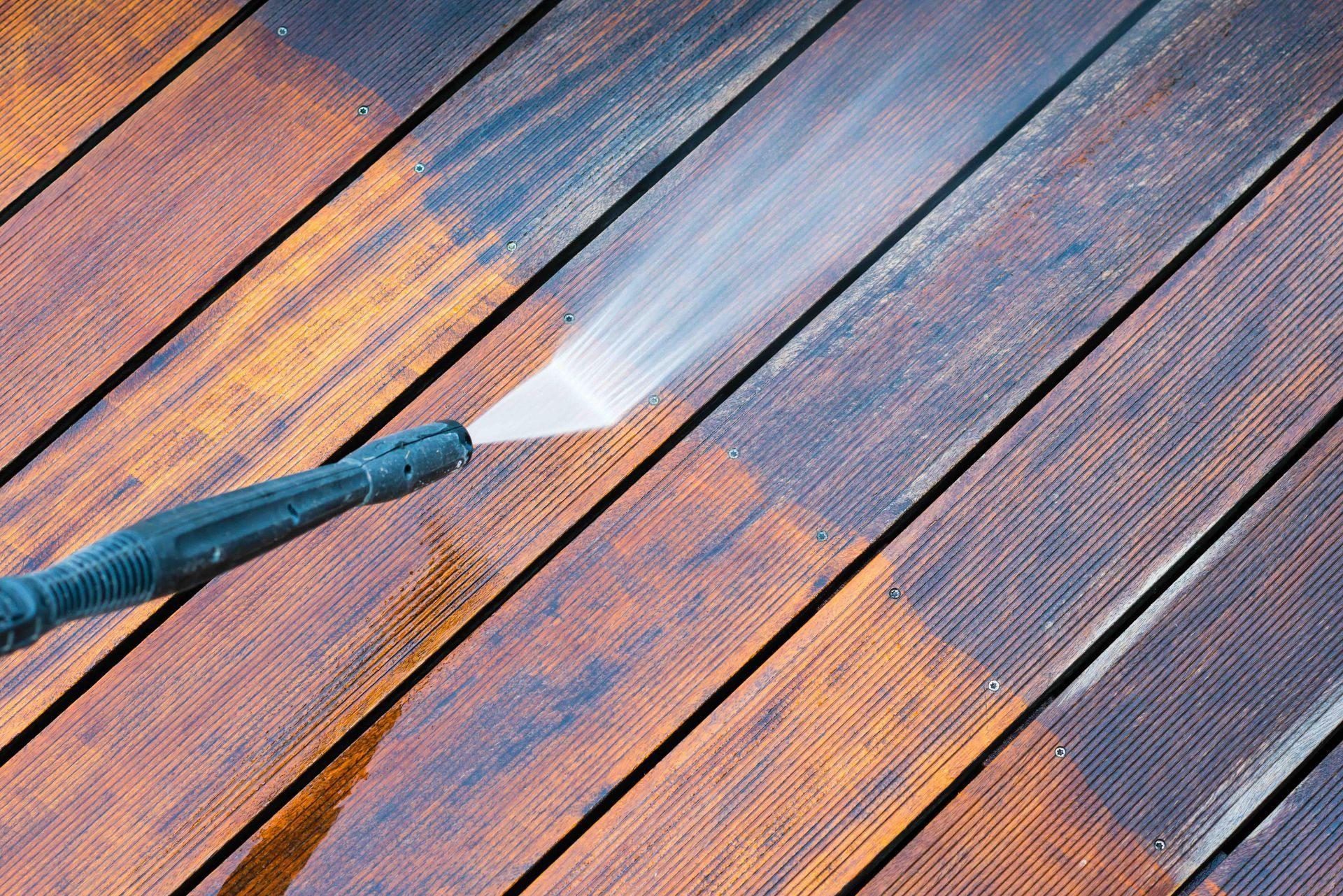Make Sure Your Home is Up to Code
Ensuring that your home is up to code is essential for your property's safety, functionality, and compliance. Whether you are a homeowner, renter, or prospective buyer in Grand Rapids, MI, and the surrounding areas, understanding the local building codes and regulations is vital. This comprehensive guide will provide you with the necessary information to ensure your home meets the required standards, enhancing your property's overall quality and value.
While building codes generally follow state and national standards, knowing any specific local codes and regulations that may apply in Grand Rapids, MI, is essential. The City of Grand Rapids has its own Building Safety Department responsible for enforcing local codes and issuing permits. Please familiarize yourself with their website, resources, and contact information to ensure you have the most up-to-date information for your location.
Understanding Building Codes
Building codes are a set of regulations and standards that outline the minimum requirements for building construction, maintenance, and safety. These codes are enforced by local authorities to protect occupants and ensure the structural integrity of properties. In Grand Rapids, MI, building codes are typically based on the International Building Code (IBC) and state and local amendments.
Building Permits and Inspections
Before undertaking any major construction or renovation project, obtaining the necessary building permits from the local Building Department is crucial. A building permit ensures that your project complies with the applicable codes and regulations.
Additionally, the Building Department conducts inspections at various stages of construction to verify compliance and safety. It is essential to schedule and pass these inspections to avoid potential penalties and ensure the work meets the required standards.
Electrical Systems
Electrical systems play a significant role in maintaining a safe and functional home. In Grand Rapids, MI, electrical installations are regulated by the National Electrical Code (NEC) adopted by the state.
When it comes to electrical work, hiring a licensed electrician who is well-versed in local codes is advisable. Standard electrical code requirements include proper grounding, circuit breaker installations, wiring methods, and electrical outlet placement.
Plumbing and Mechanical Systems
Proper plumbing and mechanical systems are essential for the comfort and functionality of your home. Local codes in Grand Rapids, MI, govern water supply, drainage, ventilation, heating, and cooling systems. Compliance with these codes helps prevent water leaks and sewage issues and ensures efficient energy use. Hiring licensed professionals for plumbing and mechanical work will help ensure adherence to the codes and regulations.
Fire Safety
Fire safety codes aim to protect lives and properties from fire risks. In Grand Rapids, MI, fire safety regulations cover smoke detectors, fire alarms, fire extinguishers, emergency exits, and fire-resistant building materials. It is crucial to have working smoke detectors on each floor of your home and adequately maintain fire safety equipment. Regularly check and test smoke alarms and keep fire extinguishers readily accessible.
Structural Considerations
Ensuring the structural integrity of your home is essential for safety and longevity. Local building codes in Grand Rapids, MI, specify foundations, framing, load-bearing walls, and roof requirements. Compliance with these codes helps prevent structural failures, collapses, and potential hazards. When undertaking significant renovations or modifications, consult a structural engineer to ensure your plans align with the local codes and do not compromise the structural integrity.
Accessibility
Inclusive design and accessibility are crucial considerations when it comes to building codes. Ensuring that your home provides accessible features for individuals with disabilities is a legal requirement and promotes inclusivity. Codes related to accessibility cover areas such as door widths, ramps, handrails, and bathroom accessibility. Incorporating these features creates a welcoming and inclusive environment for all residents and visitors.
Environmental Considerations
In addition to structural and safety codes, it is essential to consider environmental regulations that may apply to your home. These regulations aim to protect natural resources, promote energy efficiency, and reduce environmental impact. This can include requirements related to energy-efficient insulation, proper disposal of hazardous materials, water conservation, and compliance with local zoning and land use regulations.
Lead-Based Paint
Homes built before 1978 may have used lead-based paint, which poses a health risk, particularly to children. Federal regulations require homeowners and landlords to disclose the presence of lead-based paint in residential properties. If you suspect the presence of lead-based paint, hiring a certified professional for testing and, if necessary, safe removal or encapsulation is recommended.
Code Updates and Changes
Building codes are periodically updated to reflect technological advancements, safety standards, and environmental considerations. It is essential to stay informed about any code updates or changes that may affect your home. Check with the local Building Department or consult professionals to ensure your home complies with the latest standards.
Renovations and Remodeling
When planning renovations or remodeling projects, it is crucial to consider the impact on code compliance. Depending on the scope and nature of the project, you may need to obtain building permits, adhere to specific codes, and schedule inspections. Consulting with professionals, such as architects, contractors, or engineers, can help ensure your plans align with the applicable codes and regulations.
Ongoing Maintenance and Inspections
Code compliance is not a one-time task but an ongoing responsibility. Regular home maintenance and inspections are essential for identifying potential code violations or safety hazards. This can include checking for plumbing leaks, electrical issues, and roof damage and ensuring that safety equipment, such as fire extinguishers and smoke detectors, are correctly working.
Homeowner's Association (HOA)
Live in a community governed by a homeowner's association (HOA). There may be specific rules and regulations in place that dictate how properties within the community should be maintained. These rules cover various aspects, such as exterior modifications, landscaping, parking, and noise restrictions. Familiarize yourself with the HOA guidelines and ensure compliance to avoid any penalties or disputes with the association.
Code Violations and Remediation
If you discover that your home has code violations, it is crucial to address them promptly. Failure to rectify code violations can result in fines, penalties, or legal consequences. Consult with professionals, such as contractors or inspectors, to assess the violations and develop a remediation plan. Working with licensed and reputable professionals who can resolve the issues and bring your home back into compliance is crucial.
Key Takeaways
Keeping your home up to code is essential for safety, functionality, and compliance with Grand Rapids, MI regulations and surrounding areas. Understanding local building codes, obtaining permits, and working with licensed professionals will help ensure that your home meets the required standards. By prioritizing compliance, you enhance your property's overall quality, value, and livability, providing you and your family with peace of mind and a safe living environment.
Read other blog posts



STAY INFORMED: SIGN UP FOR OUR NEWSLETTER
Thank you for subscribing to our newsletter. We will update you with important news from time to time and promise to respect your email and time.
Oops, there was an error sending your message. Please try again later.
QUICK LINKS
CONTACT
678 Front Avenue, Suite 260
Grand Rapids, MI 49504
- Mon - Fri
- Appointment Only
- Sat - Sun
- Closed
QUICK LINKS
RESOURCES
CONTACT
678 Front Avenue, Suite 260
Grand Rapids, MI 49504
- Mon - Fri
- Appointment Only
- Sat - Sun
- Closed
CORNERSTONE HOME GROUP
Website by SPECK DESIGNS


